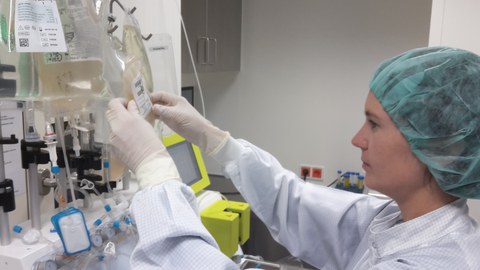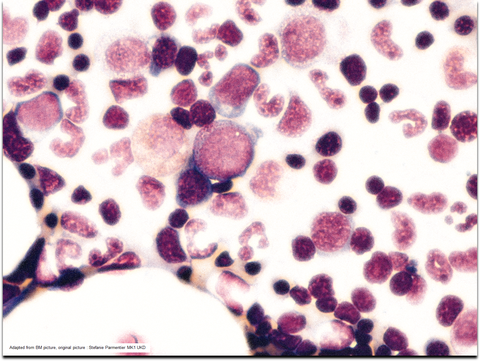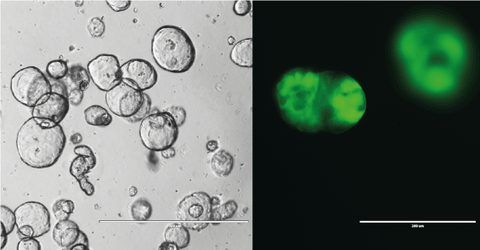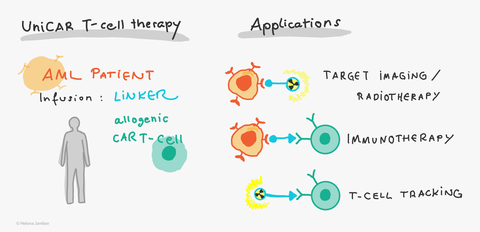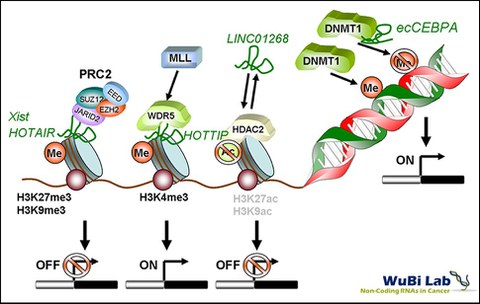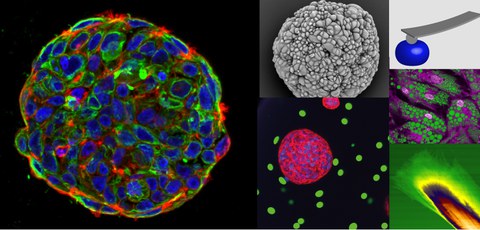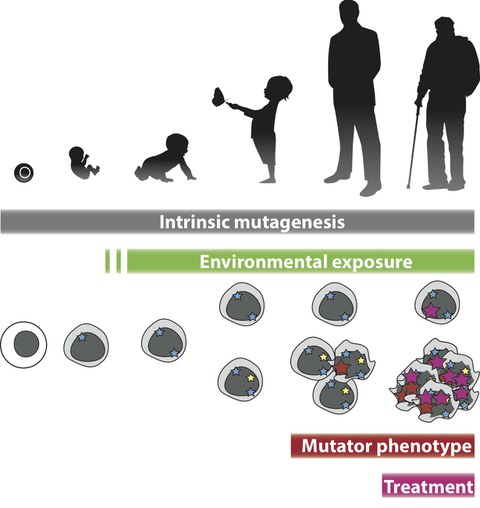Overview
Elgendy group: Metabolic plasticity of tumours
Cancer cells require dramatically high levels of energy and biomass to fuel their rapid growth. How tumors alter their metabolism to meet these high demands has always fascinated scientists. ... more
Fuchs Group: Advanced Cellular Therapeutics
Allogeneic hematopoietic stem cell transplantation (HSCT) is a potentially curative treatment for life-threatening hematopoietic disorders such as leukemia and lymphoma... more
Link-Rachner Group: Immune-based diagnostic in oncology
Solid and haematological malignancies are highly heterogeneous even within one entity. Novel techniques and an increasing knowledge about tumour biology provide the basis to implement ... more
Mircetic/Garcia Group: Resistance marker in gastric cancer
Gastric cancer, cancer of the stomach, is widespread and affects around 3 million people worldwide 1. Due to a lack of clinical signs, gastric cancers are often diagnosed too late for curative...more
Goebel/Rachner Group: Signalling pathways as targets for personalized cancer therapies
Signalling pathways control cell and tissue growth during development and regeneration. One of these critical pathways is Wnt signalling,which is ...more
Grinenko group: Regulation of haematopoiesis in health and disease
Hematopoietic stem cells (HSCs) give rise to all types of blood and immune cells. Throughout the life of an organism, the majority of HSCs are quiescent. A few HSCs, however, divide frequently to ...more
Arndt/Fasslrinner group: Engineered T-cells for personalized cancer therapy
Acute myeloid leukemia (AML) is a common blood cancer. Currently available therapy includes chemotherapy and allogeneic hematopoietic cell transplantation all of which...more
Wurm/Bill group: Non-Coding RNAs in Cancer
Non-coding RNAs are functional RNA molecules that are transcribed from DNA but not translated into proteins. They play pivotal roles in a plethora of cellular processes in ... more
Taubenberger group: ONCOmechanics
Cancer cells and their surrounding tissue are characterised by altered biomechanical properties. So far, it is not well understood how precisely these mechanical changes affect...more
Poetsch group: Biomedical Genomics
Understanding the link between genetics and the development of cancer has long been a focus of cancer research. With newest sequencing techniques, it is now possible to assess the genetic and epigenetic status as well as genome instability of individual patient’s and their individual cells at a massive scale. This can pave the way for personalized cancer therapy and may allow strategies to reduce treatment side effects on healthy cells. In individual patients, the distribution...more
Dye group: Biophysics of patient-derived cancer organoids
Rapid advancements in DNA- and RNA-sequencing technologies has made it possible to identify genetic differences between individual cancer patients. However, using such ...more


